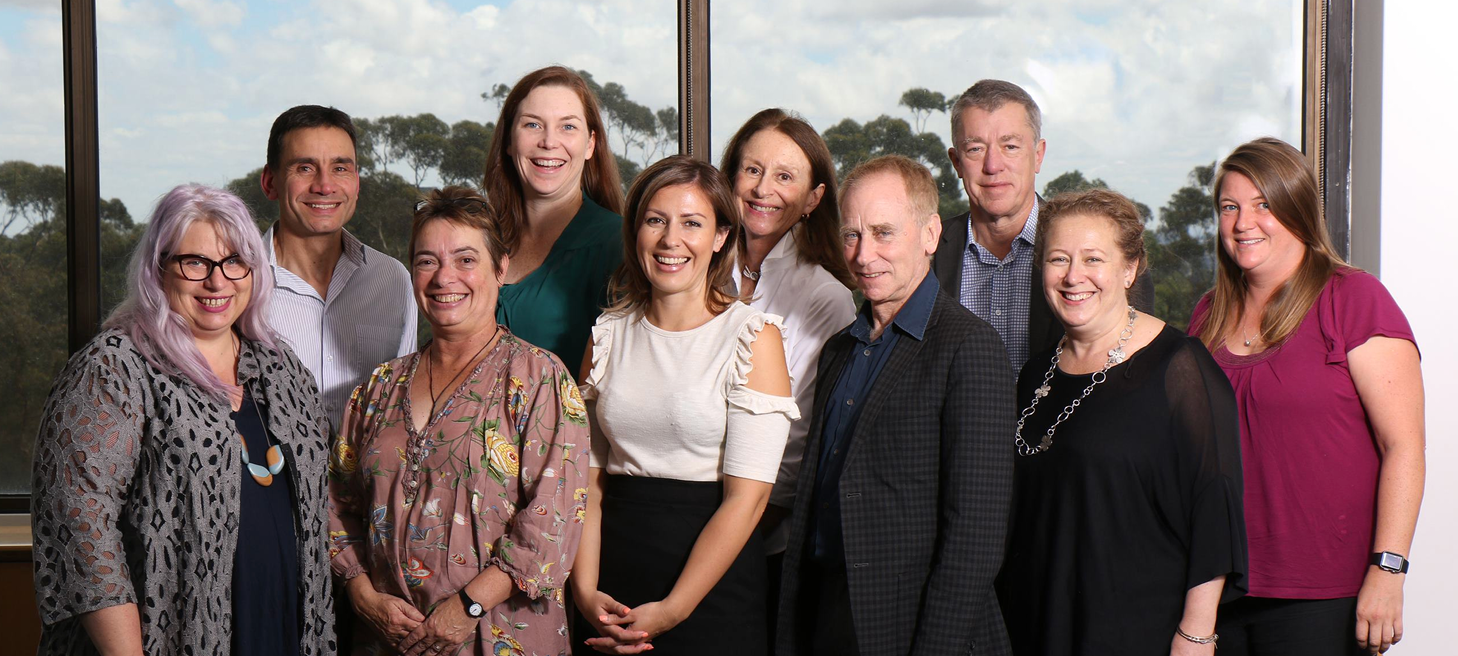
The community advisory Council (the Council) is an advisory committee of the North Western Melbourne Primary Health Network Board, and plays an integral role in helping to direct our work and ensure our activities are connected to and supported by the communities in our catchment.
The Council gives advice on issues such as improving the relevance of care and care settings, population health priorities, efficient use of existing health and community resources, and improving health outcomes along with the health care experience.
Currently the Council has eight members, each of whom reflect different voices in our region. These members are appointed for their individual skills and experience in community engagement, representing the interests of the community at large, rather than the interests of their employing organisations.
Nancy Hogan has been Chair of the Community Advisory Council since its establishment in 2015 and is also a member of the NWMPHN Board. She says the Council has been integral for NWMPHN to better understand how to engage the community in its work.
“We’ve brought together an excellent group of diverse providers in the region, who have all been able to contribute to the Council based on their considerable experience in working with the community,” Ms Hogan said. “I think what we have contributed to is a better understanding of consumer engagement when we’re preparing our proposals for commissioning.
Long standing Council member Helen Dickinson says she initially joined due to her passion for community engagement and her eagerness to work with NWMPHN.
“The opportunity to work with a group of skilled individuals who are passionate advocates for community engagement is a true privilege,” Ms Dickinson said.
“Every time we meet I come away with new ways of thinking or insights into best practice in community engagement and I’m reinvigorated by the beliefs and values of those that I get to serve on the Council with. My role with the Council also keeps me close to what is happening in terms of primary care reform and working alongside some great colleagues from the PHN.”
Ms Dickinson said that effective community engagement by primary care organisations is a crucial component in developing health care systems that work for individuals and groups.
“When done well, community engagement can have enormous impacts on designing and delivering the kinds of services that work for people. However, I also know that community engagement is difficult to do and when not done well can be a waste of precious resources and even detrimental to the health and wellbeing of those involved.
“I wanted to have a role with the Council to help bring my experience and expertise to an organisation that is truly passionate about the commissioning of high quality health services and engaging communities within their commissioning processes.”
The Council acts as a focal point for regional community engagement and advocacy to support NWMPHN’s objectives and work across the commissioning cycle. Chair Nancy Hogan says it has however required quite an involved process to get the Council to where it is today.
“It took some time for the federal government to create the framework for commissioning, so it was a process that we had to go through, and the process was a fairly steep learning curve for NWMPHN, the Community Advisory Council and the Clinical Advisory Council,” Ms Hogan said.
“It was a very different way of approaching how services could be delivered and this meant that individuals were asked to think in new and creative ways and I think we have done that and we have responded in a very positive way.”
Maryanne Tadic, another integral member of the Council, also believes the team has been successful in guiding NWMPHN around best practice in community engagement.
“I think the Council has made some great progress in understanding the catchment and community needs via the population health needs assessment, and is also working towards consolidating and solidifying a community engagement framework which will be incredibly useful across the catchment.
“The Council has also provided some pertinent perspectives and advice to commissioning frameworks, project proposals and various other works in progress.” Ms Hogan believes that this greater understanding and connection to the community view has changed not only how NWMPHN identifies needs and commissions services, but also how it sees itself and its ability to improve community health.
“I believe the Council has given the PHN an opportunity to reflect on how they’ve done their services in the past, how they can do them right now, and also set a framework for what will need to be done in the future.
“We’re examining new and different ways of delivering services for people who have a mental health background, people who are homeless, new immigrants and refugees, and we’re tackling some of the issues that have always been in the too hard basket for public health.”
The Community Advisory Council had its first meeting of 2018 in February, and will be meeting again later in the year to continue their important work advising the PHN board.
This story originally appeared in the Autumn 2018 edition of Primary Pulse – North Western Melbourne PHN’s quarterly magazine. Subscribe now to received your free printed copy.




